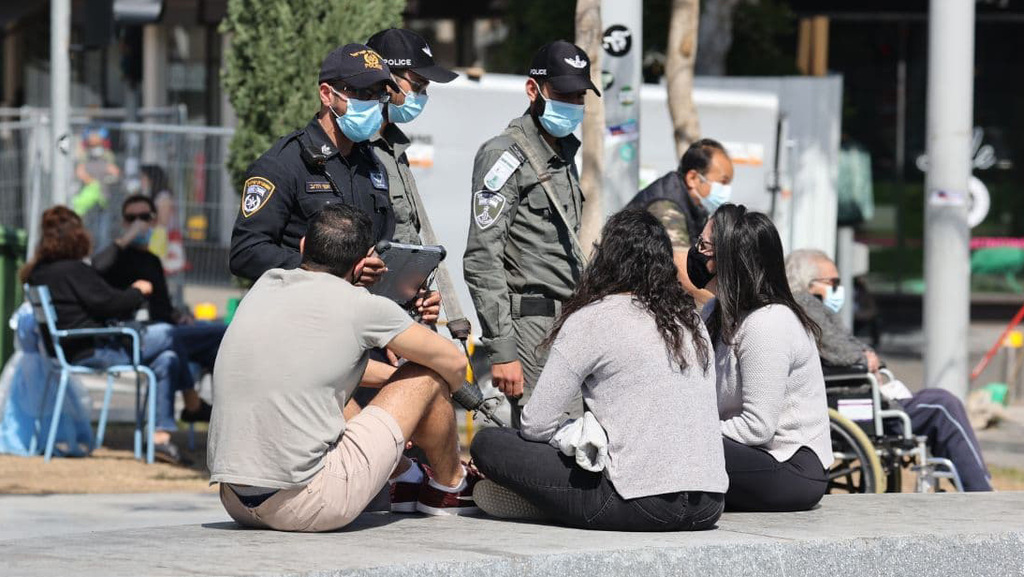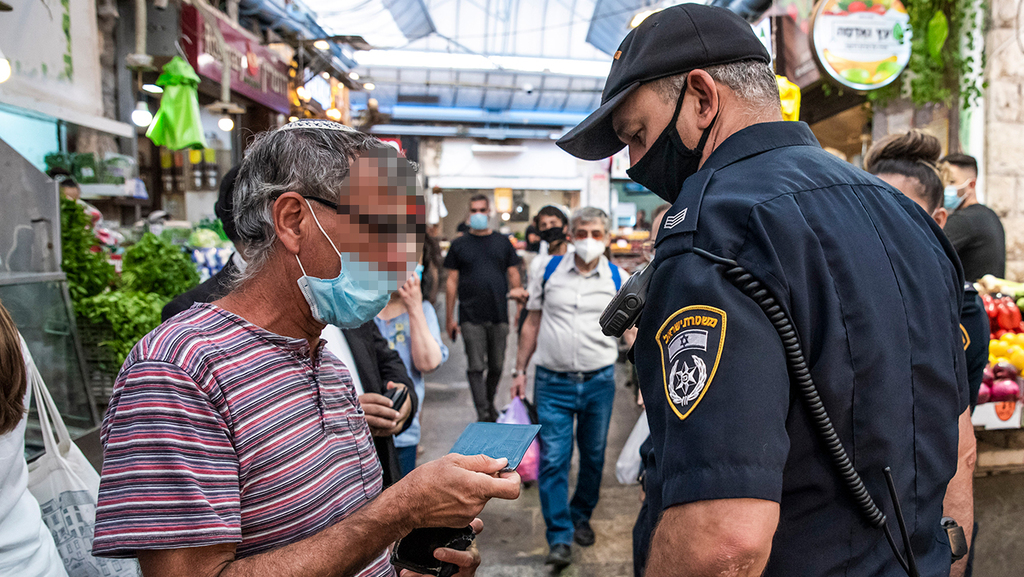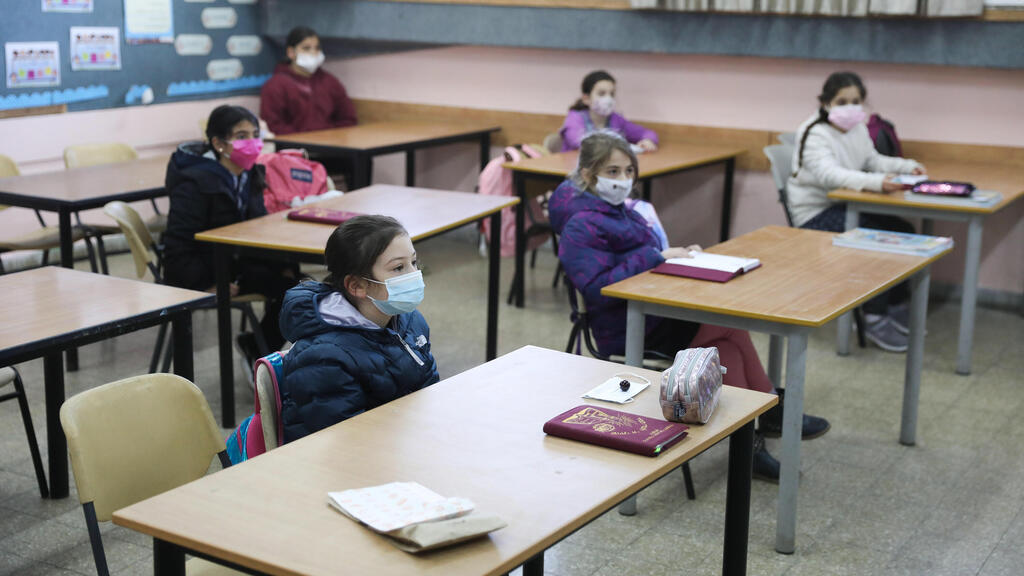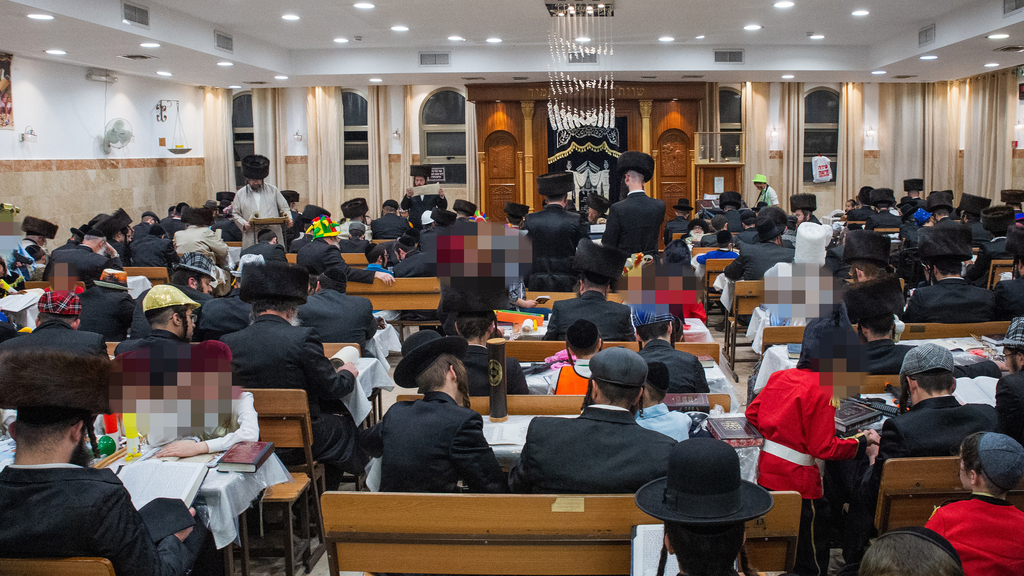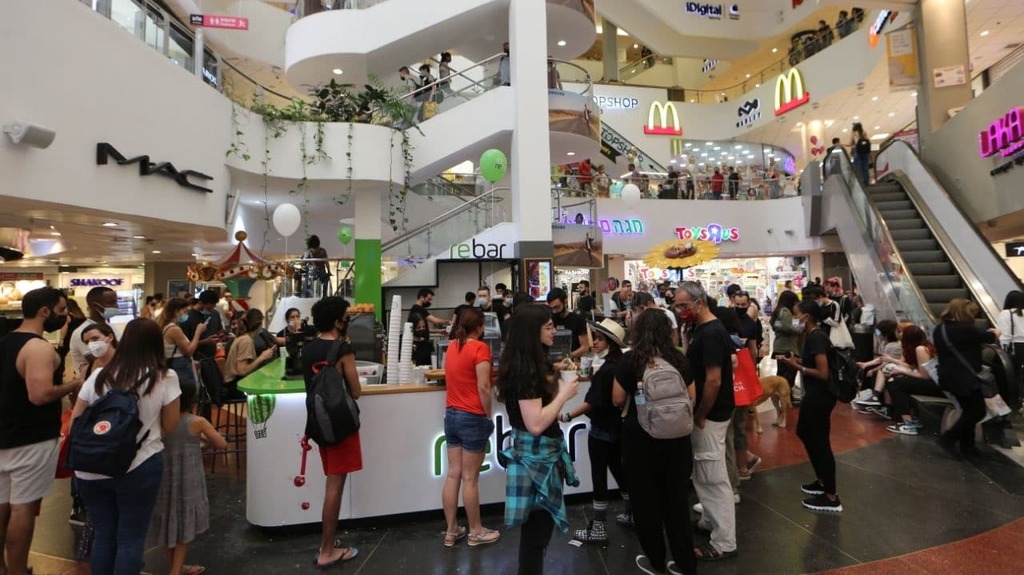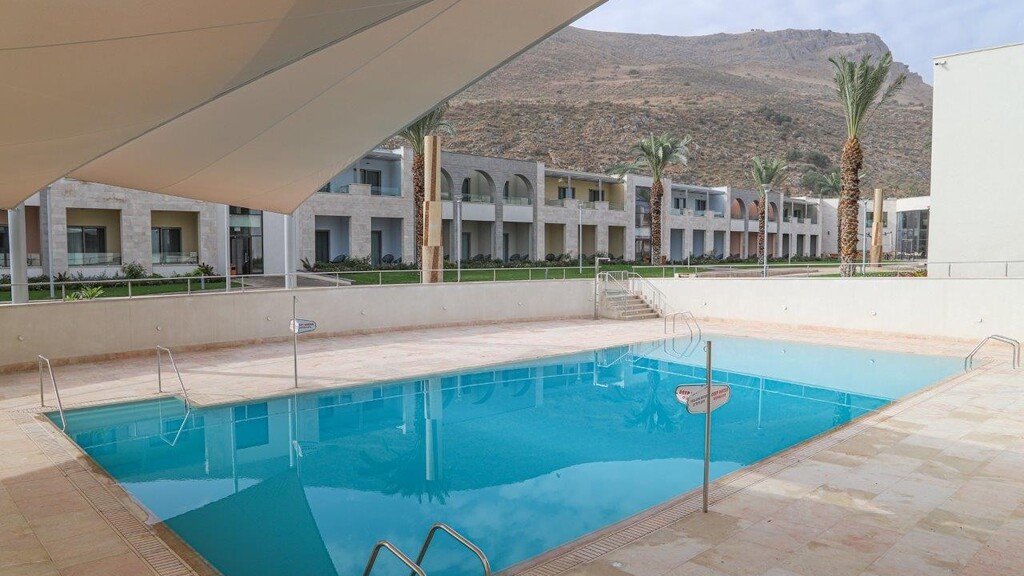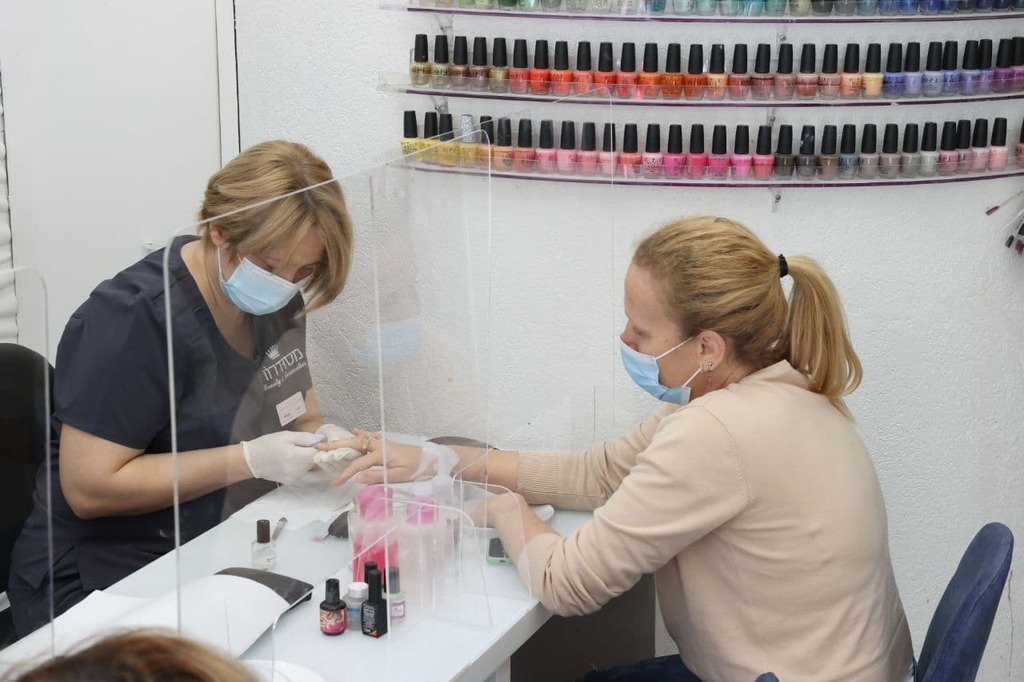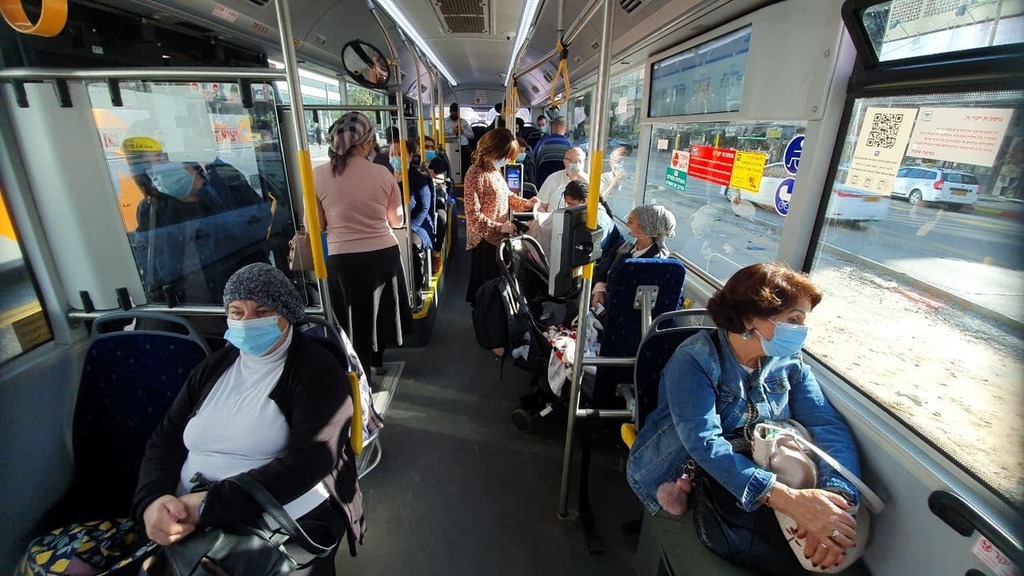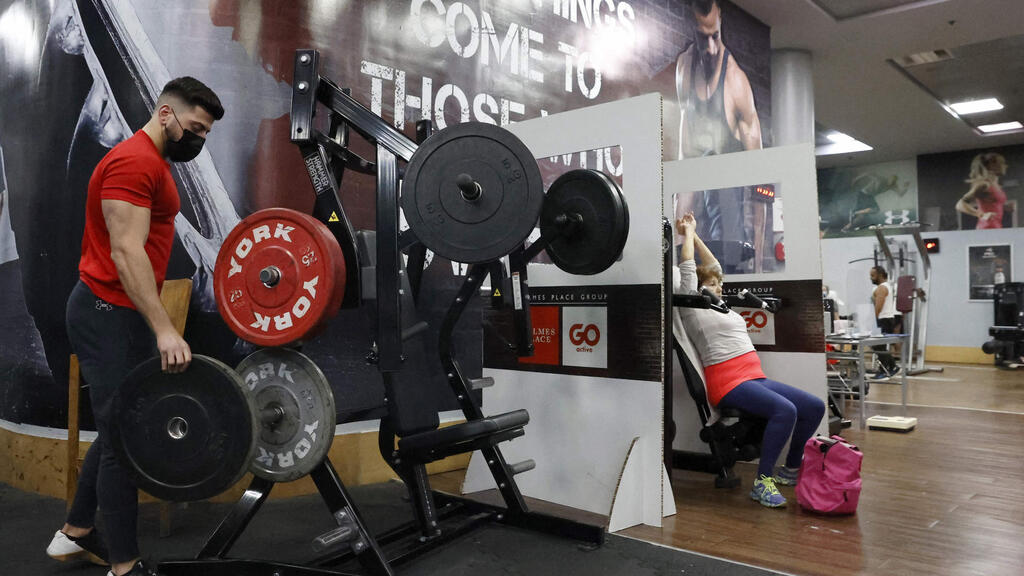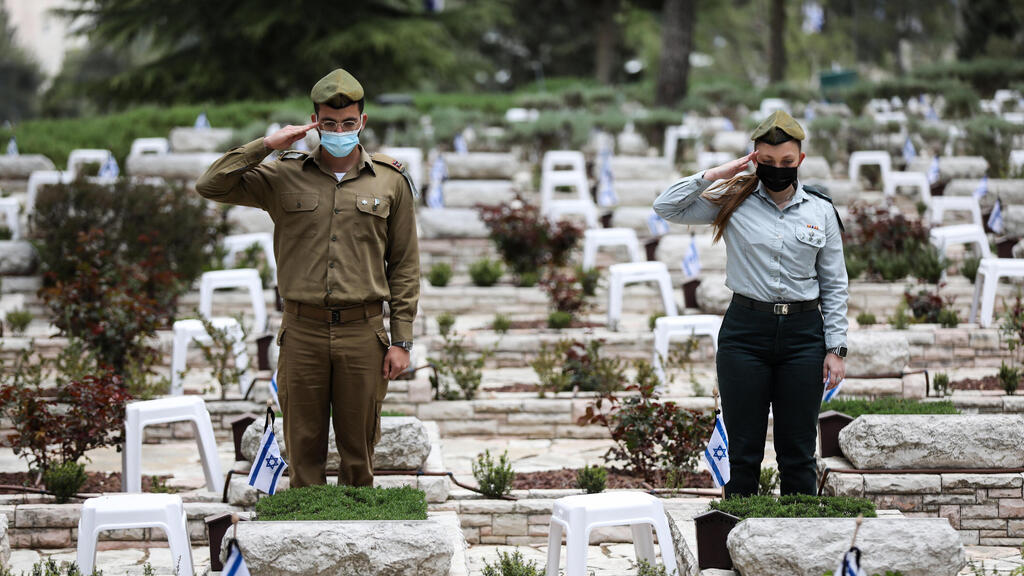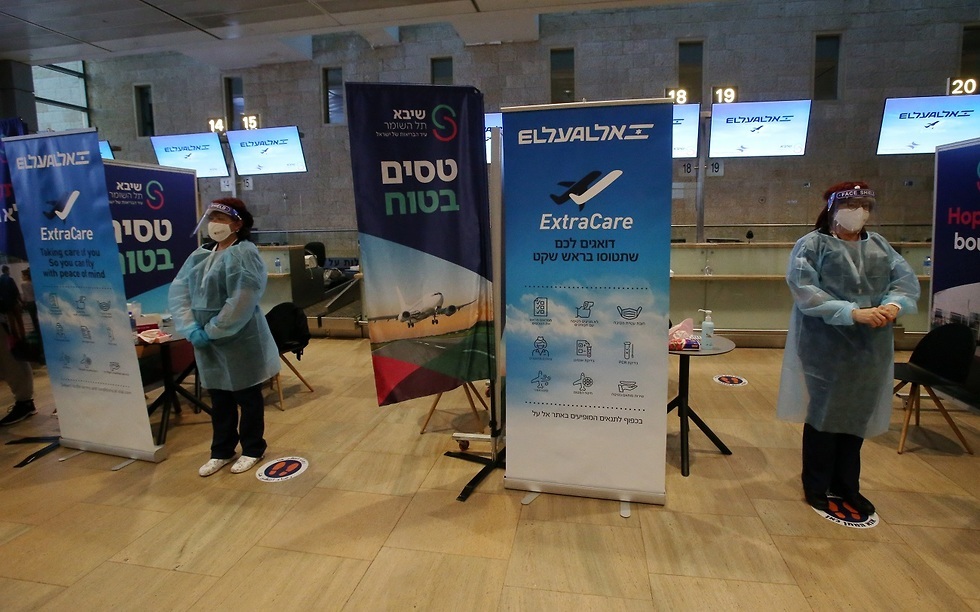Getting your Trinity Audio player ready...
While Israel has seen a dramatic decline in the number of new coronavirus cases, some health restrictions are still in effect and will no doubt affect this year’s Memorial Day events and Independence Day celebrations, which take place later this week.
Last year's events were heavily scaled down as Israel was battling the first wave of COVID-19 pandemic, with family members unable to attend cemeteries and Independence Day celebrations were largely virtual.
This year, Memorial Day and Independence Day event - set to take place on April 12 and 14, respectively - are expected to bring a sense of normalcy since the majority of restrictions on movement have been lifted due to Israel's fast-paced vaccination campaign.
Quite a few restrictions, however, have remained in place.
Gatherings
Gatherings are limited to no more than 20 people in confined spaces and up 100 people in open areas. If a complex includes both a confined and open space, a gathering of up to 100 people is still possible.
Gatherings for Green Pass holders (those who are fully immune to the pathogen through inoculation or recovery) are not subject to the restrictions in either private or public spaces. Masks must always be worn during all gatherings, even outdoors.
The education system
Schools have also not fully reopened since children below the age of 16 currently cannot be vaccinated.
For the time being, middle school students will continue to study in capsule format. Students in 5-6 grades study in groups of up to 20 students, at least four days a week. Grades 7-12 study in half groups, at least two days a week. The capsule system has been completely scrapped for kindergartners and grades 1-4.
In local authorities where the infection rate is high, remote studies will continue for students in grades 11-122. The rule is in effect for schools which do not conduct weekly COVID tests, as well as those where less than 75% of the students hold a Green Pass.
Religious institutions
Synagogues, meanwhile, are still subjected to a limit on capacity, which allows up to 20 worshipers in a confined space and up to 100 in an open area.
Synagogues that only allow in Green Pass holders and have a capacity of less than 5,000, can fill up to 50% of its capacity and host no more than 1,000 people in a confined space. Synagogues with more than 5,000 seats can host up to 4,000 people in a confined space and operate at least 40% of its capacity.
"Green Pass synagogues" that have an open space and a capacity of up to 10,000 seats, can operate at 50% of occupancy and host no more than 3,000 worshippers. Synagogues with an open space that have more than 10,000 seats, can operate at up to 30% of their occupancy but no more than 10,000 people at a time.
Trade and commerce
In essential stores, such as supermarkets and pharmacies, there is a capacity limit of one person per seven square meters or up to 20 people - whichever is higher.
Open-air shopping centers and street shops measuring less than 300 square meters, can host one person per seven square meters or up to 20 people. Those that are over 300 square meters can host one person per 15 square meters but still no more than 20 people at the same time.
Malls meanwhile can host one person per 15 square meters inside complexes’ public space, while individual stores are subject to the same size restrictions as street shops.
Hospitality industry
In public areas of the hotels there is a limit of one person per seven square meters or up to 20 people if it is a confined space, and up to a 100 people in an open area - whichever is highest.
Hotel dining rooms can operate at no more than 50% of their maximum capacity and no more than 300 people at the same time.
Hotel swimming pools and gyms will require guests to maintain a distance of two meters from one another, or otherwise put up a partition to separate the guests.
Restaurants and cafes
In restaurants, cafes and bars, indoor dining is only allowed for Green Pass holders, with facilities allowed to operate at 75% of its capacity and no more than 100 people. In bars, one empty chair is required to be place between each person, unless guests live in the same household.
When dining outside, no more than a 100 people are allowed at the same time. In an open-air bar at least one empty chair is required to be place between each person, unless guests live in the same household.
12 View gallery
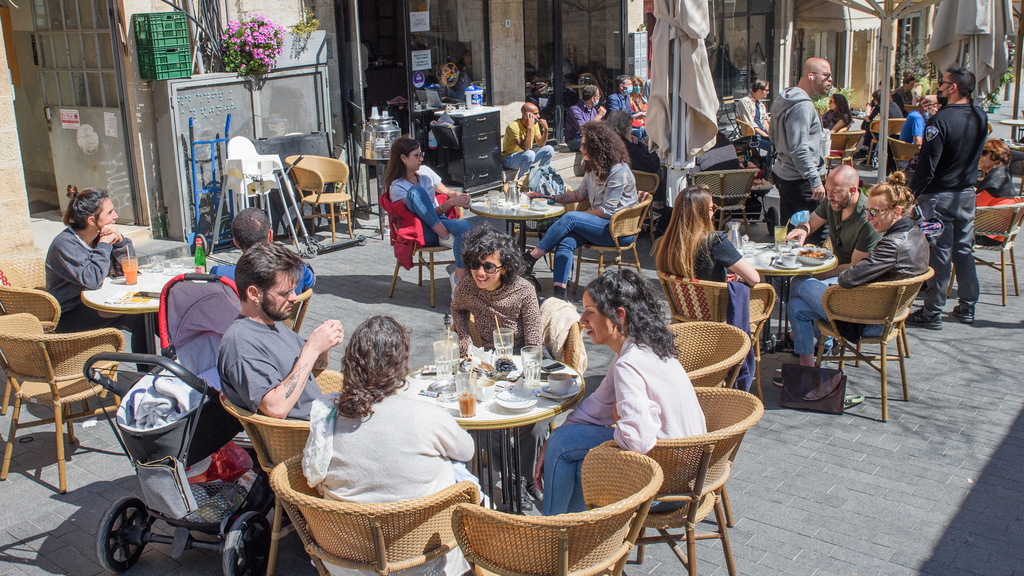

Sitting in a coffee house in Jerusalem under the restrictions
(Photo: Shalev Shalom )
Events and organized activities
Events and organized activities are currently available only to Green Pass holders. The events are divided into two categories: Events that take place while sitting and without food (such as sporting games and conferences) and events which include movement and serving of food (including parties and celebrations).
Seated events with no food in a confined space with up to 5,000 seats, can operate at 75% capacity and no more than 1,000 people inside. Events in confined spaces with more than 5,000 seats, can operate at 30% capacity and no more than 3,000 people.
Events that include sitting and no food in an open space with up to 10,000 seats, can operate at 75% occupancy and no more than 3,000 people. In an open space with more than 10,000 seats, at 30% occupancy and no more than 5,000 people.
In events which include movement and serving food: up to 50% occupancy and no more than 500 people in an open space or 300 people in a confined space.
Beauty industry
In hair and beauty salons as well as tattoo parlors the permitted occupancy is one person per seven square meters or up to 20 people at the same time - whichever is highest.
Museums
In museums, tickets must be ordered in advance. In small museums (less than 3,000 square meters) the occupancy is limited to one person per seven square meters. In large museums (more than 3,000 square meters), occupancy is limited to one person per 15 square meters.
Nature reserves and national parks
In nature reserves, national parks, national and memorial sites, the permitted occupancy is one person per seven square meters or up to 100 people - whichever is higher. Activities are allowed in open areas only.
In zoos and safaris, the permitted occupancy is one person per 15 square meters or up to 100 people - whichever is higher.
Public transport
In public transport where windows can be opened - the trip will take place with open windows only. Passengers must pay for the trip by validating their ticket independently and not purchase tickets from the driver.
In passenger buses, sitting in the first two rows behind the driver is prohibited, unless there is a partition at least 180 cm high between the driver and the seats behind him. Intercity buses will not allow standing passengers.
In taxis, passengers are not allowed to sit next to the driver, unless there is a nylon partition between the driver and the adjacent seat. Occupancy in a taxi is limited to the driver and one passenger, or the driver and two passengers if one of the passengers needs an escort. When passengers live together, there is no limit to the number of passengers permitted to travel together.
Train passengers must order train vouchers to book their seats in advance in addition to regular tickets.
Gyms and swimming pools
Gyms and fitness studios must operate under the Green Pass rule, with studios requiring from the customers to make appointments in advance. The occupancy limit is one person per seven square meters or up to 20 people in a confined space and up to 100 people in an open area - whichever is highest.
Closed swimming pools will allow only Green Pass holders to enter and only by appointment. The occupancy limit is one person for every seven square meters or up to 20 people - whichever is higher. Inside the pool the occupancy is limited to one person per every six square meters.
Open-air swimming pools must allow customers to arrive by appointment only. The occupancy limit is one person per 15 square meters or up to 100 people - whichever is higher. Inside the pool the occupancy is limited to one person per every six square meters.
On Memorial Day, all state ceremonies will be open only to those with a Green Pass. The ceremony at the National Memorial Hall will be held with up to 200 people, the ceremony at Yad Labanim in Jerusalem will be held in an open area with up to 400 people, while the ceremony at the Western Wall will be held with a maximum of 500 participants.
Municipal ceremonies that will take place outside, will be open to Green Pass holders only, or according to current restrictions on gatherings.
Entrance to cemeteries will be unlimited.
Memorial Day ceremonies inside cemeteries will be only only to Green Pass holders: Occupancy will be subjected to the same limits as events that include sitting and no food.
Bereaved families will sit at a separate area in groups of up to 20 people (inside a confined space) or up to 100 people (in an open area). Bereaved families where not everyone holds Green Pass, will sit in separate family capsules.
On Independence Day, events will be held according to restrictions on the gatherings (without capsules) or as part of the outline for events for Green Pass holders.
Ben Gurion Airport
When leaving or entering Israel, a negative COVID test must be presented to the officials at the airport. Green Pass holders are exempt from entering isolation upon arrival.
Anyone who has not been vaccinated or recovered from the virus, is required to enter home isolation for 10 days and undergo two COVID tests.


